Learn about the potential Side Effects Of IVF Treatment in this comprehensive guide. From mild discomfort to rare complications, understand what to expect during and after the procedure. Get expert insights and helpful tips to navigate your IVF journey confidently.
Table of Contents
Thanks to IVF, a lot of couples who are having trouble getting pregnant now have hope. Because of developments in assisted reproductive technology, a lot more people can now have children. Despite the high success rate of IVF, it’s important to be aware of any side effects that may appear during or after the procedure. In this article, we’ll discuss the side effects of IVF treatment, providing insightful knowledge and firsthand accounts to equip you with the confidence to embark on this life-changing journey.
What are the Side Effects of IVF Treatment?
It makes sense that many people who are thinking about IVF have concerns about its side effects. Here, we’ll examine different facets of the process while also examining potential outcomes and providing helpful advice.
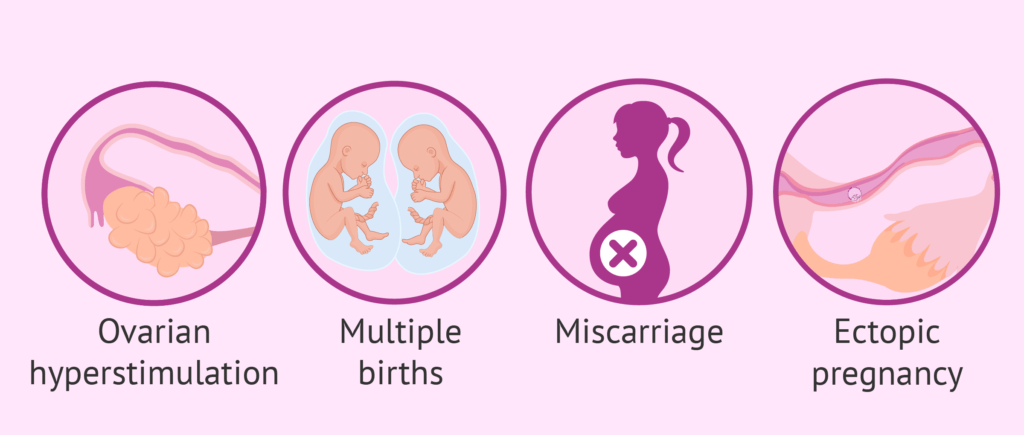
1. Hormonal Imbalance and Mood Swings: Hormonal imbalance is a typical side effect of IVF treatment. Mood swings, impatience, and emotional volatility may result from the drugs used to promote egg production. These hormonal alterations are completely natural and typically go away following treatment.
2. Ovarian Hyperstimulation Syndrome (OHSS): Although it only happens in a small percentage of cases, OHSS is a potential side effect of IVF treatment. It occurs when the ovaries swell up and hurt as a result of overreacting to reproductive drugs. Most OHSS incidents are minor and go away on their own. However, serious OHSS calls for medical intervention.
3. Abdominal Discomfort and Bloating: The ovaries may expand during IVF treatment, causing bloating and pain in the abdomen. This is a transient adverse effect that usually goes away following egg removal.
4. Fatigue and Tiredness: People who undergo IVF treatment may experience fatigue and tiredness due to the physical and emotional demands of the process. Resting and taking care of yourself is essential during this phase.
5. Bruising at Injection Sites: The injection sites commonly experience mild bruising after receiving fertility medication injections. To relieve discomfort, apply warm compresses.
6. Risk of Multiple Pregnancies: The increased possibility of multiple pregnancies, such as twin or triplet pregnancies, is one of the potential side effects of IVF. While for some people this may be a dream come true, there are added risks for both the mother and the child involved.
7. Ectopic Pregnancy: Even though it’s uncommon, IVF treatment can result in an ectopic pregnancy. When the fertilized egg implants elsewhere—typically in the fallopian tube—then the uterus, this occurs. Ectopic pregnancies demand urgent medical care.
8. Risk of Ovarian Cancer: According to certain research, IVF treatment may be associated with a marginally increased risk of ovarian cancer. However, more investigation is required to make a firm connection.
9. Infection or Bleeding: IVF carries a small risk of infection or bleeding, much like any medical process. These dangers can be reduced by maintaining proper cleanliness and adhering to post-treatment guidelines.
10. Embryo Transfer Complications: There is a small chance that the uterus or cervix could get hurt during the embryo transfer procedure. But trained medical personnel take the essential safety measures to reduce such hazards.
11. Medication Allergies: The fertility drugs used during IVF can cause allergic reactions in certain people. Consult a doctor right away if you experience any unsettling symptoms.
12. Birth Defects: There is conflicting evidence about the relationship between IVF and birth abnormalities. An important link has not been identified in all studies, however, some point to significantly greater risk.
13. Post-Retrieval Cramping: Some female patients may feel mild cramping and discomfort following the egg retrieval operation. These signs and symptoms are typical, and they normally go away in a day or two.
14. Risk of Premature Delivery: Premature birth may occasionally be almost more likely with IVF pregnancies. Prenatal care that is adequate can assist in managing and reducing such risks.
15. Ovarian Cysts: The development of ovarian cysts may result after IVF treatment. While benign cysts typically go away on their own, your doctor will keep an eye on them.
16. Adverse Reaction to Anesthesia: Anesthesia is utilized during egg retrieval or embryo transfer to promote patient comfort. Although they are uncommon, negative effects can happen.
17. Sexual Discomfort: Some couples may feel sexual discomfort during IVF because of medical procedures or psychological issues. To solve these issues, clear interactions and understanding are crucial.
18. Weight Gain: Some people may have temporary weight gain as a result of hormonal changes during IVF. It is possible to control this side effect by leading a healthy lifestyle.
19. Success and Joy: Many couples find success and delight in their IVF journey, celebrating the wonder of life and motherhood despite the potential side effects of IVF treatment and difficulties.
Read Related Topics: What Are the 5 Stages of IVF?
What are the long-term side effects of IVF?

IVF treatment’s potential health problems that may appear years after the procedure are referred to as the long-term side effects of IVF treatment. These can include ovarian aging, cardiovascular health issues, cancer risk, child health issues, psychological effects, financial strain, parent-child relationship dynamics, changes in social and support networks, future reproductive implications, and success rates for follow-up IVF attempts. These factors must be taken into account before receiving IVF treatment, and open communication with medical professionals regarding potential long-term hazards and aftercare is crucial.
FAQs: Side Effects of IVF Treatment
Q: How long does it take to recover after IVF egg retrieval?
A: Most women recover within a few days after egg retrieval, but it’s essential to avoid strenuous activities for about a week.
Q: Can I exercise during IVF treatment?
A: Light to moderate exercise is generally safe during IVF treatment, but consult your doctor to ensure it’s suitable for your specific situation.
Q: Is IVF painful?
A: IVF procedures may cause some discomfort, but the pain is usually manageable and short-lived.
Q: Are there any natural alternatives to IVF?
A: Acupuncture and dietary adjustments are two natural alternatives to IVF, the most popular reproductive treatment, that some people may consider. But how well they work for each individual differs.
Q: Can IVF guarantee pregnancy?
A: IVF offers a higher chance of pregnancy, but success is not guaranteed. Factors like age, overall health, and fertility issues influence the outcome.
Q: How to cope with the emotional challenges of IVF?
A: Seeking support from loved ones, joining support groups, and talking to a mental health professional can help individuals cope with the emotional challenges of IVF.
Conclusion: Side Effects of IVF Treatment
The potential negative consequences of IVF must be well understood by anyone beginning this fertility path. Everything from hormone irregularities to rare complications can be helped by being prepared and aware. A caring medical staff and family by your side can make a world of difference. Everybody will have a unique experience, so keep that in mind. The thrill of holding a long-awaited baby in your arms is a huge motivator that keeps couples positive and constant throughout their IVF journey.
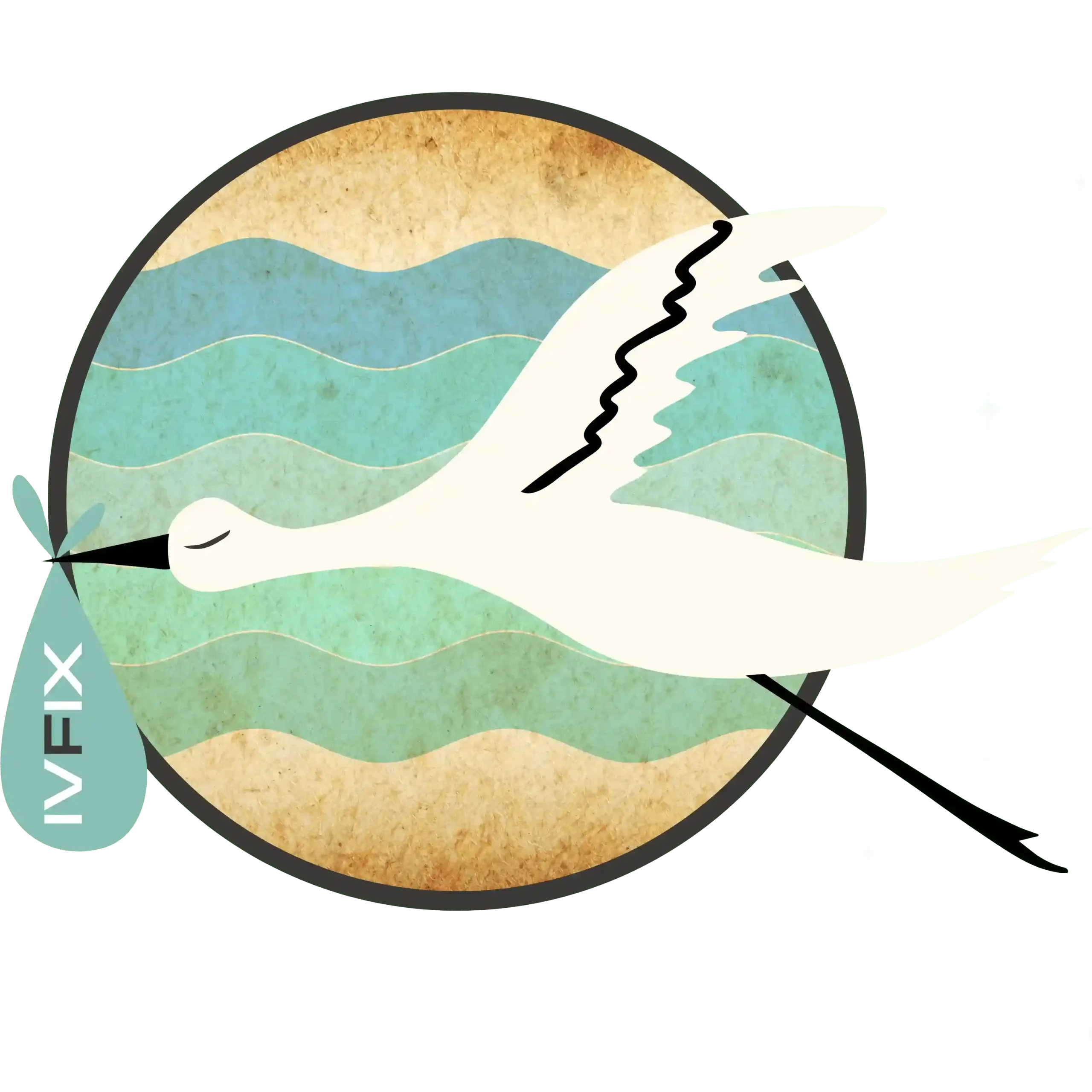
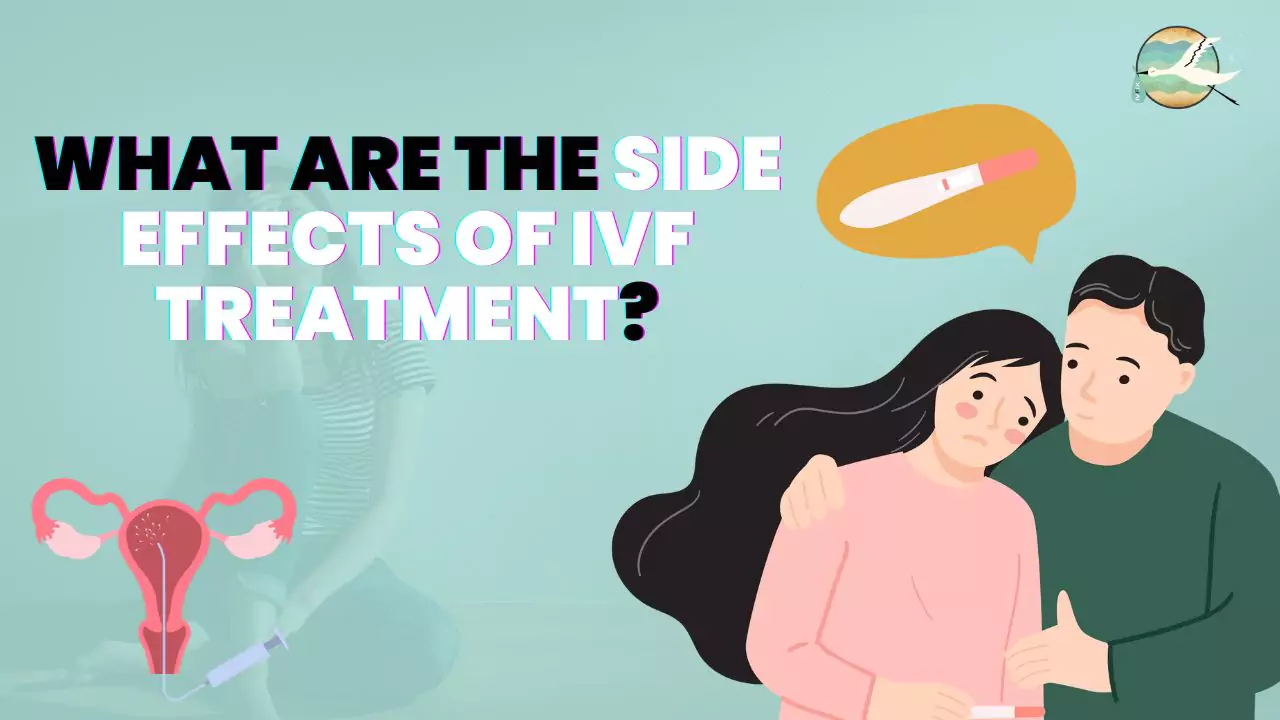
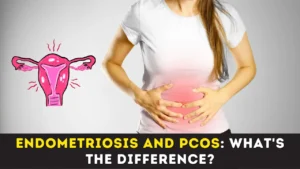

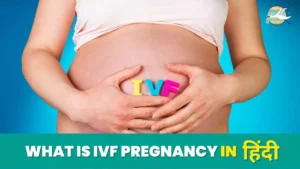
[…] What are the Side Effects of IVF Treatment? 2023 […]
[…] due to potential side effects and individualized dosages, Dexona should only be used under medical supervision. Before taking […]